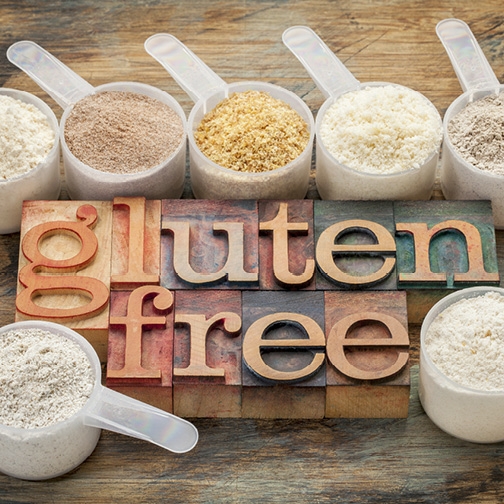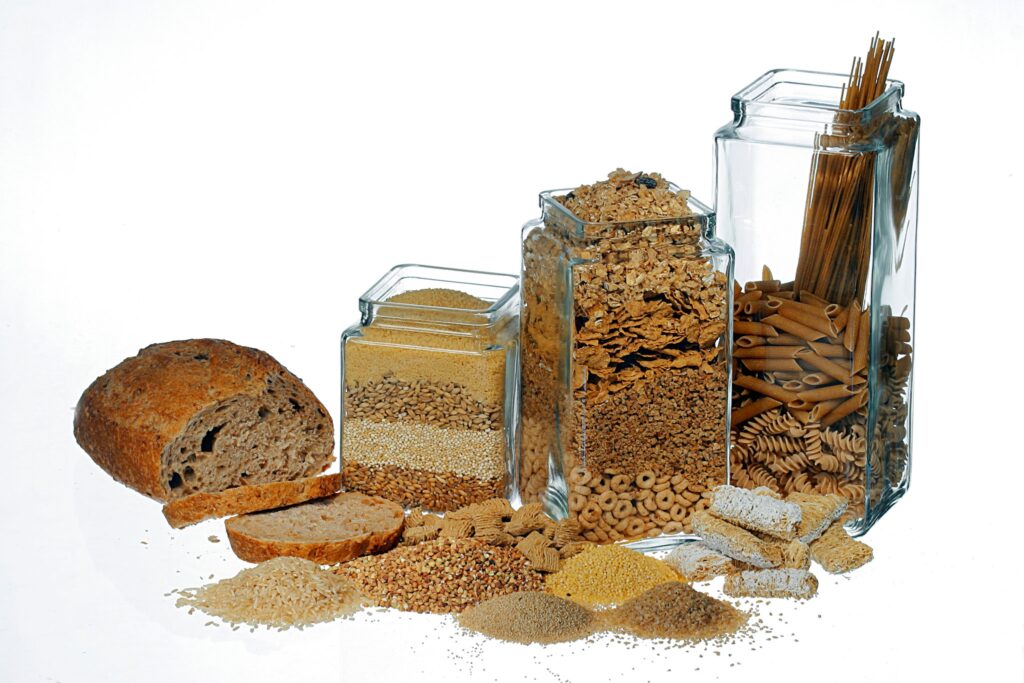Today many people suffer from food allergies, conditions like Irritable Bowel Syndrome (IBS), leaky gut etc. due to wrong eating habits like intake of hard to digest food items, junk food, overeating etc. Stress and reduce intake of home- made food also contribute to these problems.

The real basis of health and disease resides in our own digestive strength and lifestyle that goes along with it. In Ayurveda, dietary sensitivities are often co-related and interpreted as a lack of Agni or digestive fire. When digestive fire is weak, it can lead to malnutrition, food sensitivities, gluten intolerance etc.
Gluten is a protein which is found in most proteins. In some people, gluten which is found in wheat, rye and triticale (grain produced by the cross between wheat and rye) can trigger various health problems and other insensitivities. Other grains like quinoa, corn and rice also contain gluten but they don’t seem to cause the same problem as wheat, barley, rye or triticale. Ayurveda treats gluten intolerance by correcting Ama (toxins) and weak digestive fire. Gluten intolerance is a kind of ‘ajeerna’ in Ayurveda.
In case of gluten intolerance, gluten free diet has to be followed. Some people may need to stop eating wheat for a while until their digestive fire heals.
A gluten free diet is essential for managing the symptoms of celiac disease and other medical conditions associated with gluten.

List of foods that you can eat on gluten-free diet are:
- Fats and Oils: Include gluten free fats and oils such as cow ghee (clarified butter), olive oil, coconut oil, sesame oil and sunflower oil. Refined oils and oils with flavours and spices should be avoided.
- Spices and Condiments: Include spices and condiments such as turmeric, ginger, fennel seeds, coriander seeds, carom seeds, black cumin, black pepper, asafetida, bitter herbs like Patola (Trichosanthes dioica), kutki (Picrorrhiza kurroa) etc. are prescribed. In addition, cooling herb like shatavari (Asparagus racemosus) is also given. Immunity enhancing herbs like bala (Sida cordifolia), Guduchi (Tinospora cordifolia) are also prescribed.Ketchup, tomato sauce, mayonnaise, relish and pickles must be avoided.
- Gluten-free beverages: Water, fresh fruit juice, green tea, lemon juice, fresh buttermilk should be included in the diet. Alcoholic drinks, coffee, pre-made smoothies, malt beverages such as wine coolers should be avoided.
- Dairy Products: Dairy products such as cow milk, skimmed milk, plain yogurt and cheese should be taken.
- Grains: Buckwheat, quinoa, sorghum, tapioca, corn, millet, arrowroot, oats, ragi, brown rice are gluten free. So, these can be included. Refined flour, cakes, pastries, biscuits must be avoided.
- Starches and Flours: Corn, corn flour, chickpea flour, tapioca flour etc. are considered as gluten free. Avoid white flour, yeast bread, pastries etc.
- Nuts and Seeds: All nuts and seeds are gluten free so they should be consumed regularly.
- Fruits and Vegetables: All fruits and vegetables are naturally free of gluten.
This diet eliminates processed and unhealthy food products from the diet and encourages people to increase their intake of fresh fruits and vegetables.
Some risks of gluten free diet are:
- Gluten is found naturally in many whole grains like barley and wheat. Meanwhile, some processed gluten-free food products are not enriched with minerals and vitamins. Gluten free diet could increase the risk of deficiencies such as folate, riboflavin, iron, niacin etc.
- You may feel better initially without wheat but within few months or weeks, the digestive distress, bloating, fatigue, brain fog can occur.
- Certainly, white flour and products made with it are harmful and should be avoided. In addition, genetically modified foods and factory-grown wheat must be avoided.
For patients suffering from gluten intolerance, Ayurveda gives a new ray of hope. Ayurveda has time-tested treatments to counter the imbalance of body functioning where body becomes its own enemy. Simple Ayurvedic remedies, balanced and healthy diet, yoga and meditation help to enjoy better digestion thereby helps to overcome gluten intolerance.
Disclaimer:-
This article is not a substitute to the standard Medical Diagnosis or personalized Ayurvedic Treatment! It is intended only for Information!
For experts consultation, please write us at care@blessayurveda.com.
2,845 total views, 3 views today